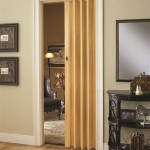Aluminum Interior Doors: A Comprehensive Guide
Aluminum interior doors are increasingly becoming a popular choice for both residential and commercial spaces. They offer a combination of aesthetic appeal, durability, and functionality that makes them a compelling alternative to traditional wood or steel doors. This article provides a comprehensive overview of aluminum interior doors, covering their benefits, types, design considerations, installation, maintenance, and cost-effectiveness.
The growing demand for aluminum interior doors stems from their inherent advantages. Aluminum is a lightweight yet strong material, allowing for sleek and modern designs without compromising structural integrity. Its resistance to corrosion and warping makes it particularly well-suited for environments with high humidity or temperature fluctuations. Furthermore, aluminum is recyclable, contributing to sustainable building practices.
Benefits of Aluminum Interior Doors
Aluminum interior doors offer a range of advantages over traditional door materials. These benefits contribute to their growing popularity and suitability for diverse applications.
Durability and Longevity: Aluminum is a highly durable material that is resistant to rust, corrosion, and rot. Unlike wood, it will not warp, crack, or splinter over time, even when exposed to moisture. This inherent durability translates to a longer lifespan for aluminum doors, reducing the need for frequent replacements and saving on long-term maintenance costs. The robust nature of aluminum also makes it resistant to dents and scratches, ensuring that the door maintains its aesthetic appeal for years to come. This is particularly advantageous in high-traffic areas where doors are subject to frequent use and potential impact.
Aesthetic Versatility: Aluminum can be easily shaped and finished, allowing for a wide range of design options. It can be powder-coated in virtually any color, allowing architects and designers to match the door to the existing décor or create a contrasting accent. Aluminum can also be anodized, a process that creates a durable and corrosion-resistant finish. The sleek and modern appearance of aluminum doors complements contemporary architectural styles, while custom designs can be created to suit more traditional aesthetics. Furthermore, aluminum doors can accommodate various glass types, including frosted, tempered, and laminated glass, providing options for privacy, light control, and security.
Low Maintenance: Aluminum doors require minimal maintenance compared to wood or steel doors. They do not need to be painted or stained, and they are resistant to pests such as termites. Regular cleaning with soap and water is typically sufficient to keep aluminum doors looking their best. The low-maintenance nature of aluminum doors makes them a practical choice for busy homeowners and commercial property owners who want to minimize upkeep requirements. This also translates to cost savings over the lifespan of the door, as there are no ongoing painting or staining expenses.
Environmental Friendliness: Aluminum is a highly recyclable material, with a significant portion of the aluminum used in construction being recycled content. Choosing aluminum doors contributes to sustainable building practices by reducing the demand for virgin materials and minimizing waste. The energy required to recycle aluminum is also significantly less than the energy required to produce new aluminum. This makes aluminum a more environmentally friendly choice compared to other door materials. The durability of aluminum doors also contributes to their environmental friendliness by reducing the need for frequent replacements, which further reduces waste and resource consumption.
Types of Aluminum Interior Doors
Various types of aluminum interior doors cater to different needs and aesthetic preferences. Understanding the different types is crucial for selecting the most appropriate door for a specific application.
Swing Doors: Swing doors are the most common type of interior door, featuring a single door or double doors that swing open on hinges. Aluminum swing doors offer a modern and durable alternative to traditional wood swing doors. They can be customized with various glass options and finishes to match the surrounding décor. Swing doors are suitable for a wide range of applications, including bedrooms, bathrooms, offices, and living rooms. They are easy to operate and provide a secure and reliable closure. Aluminum swing doors can also be equipped with various hardware options, such as lever handles, deadbolts, and door closers, to enhance functionality and security.
Sliding Doors: Sliding doors offer a space-saving solution for areas where a swinging door would be impractical. Aluminum sliding doors consist of one or more panels that slide horizontally along a track. They are commonly used for closets, patios, and room dividers. Aluminum sliding doors can be designed with multiple panels that slide behind each other, maximizing the opening width. They can also be integrated with glass panels to provide natural light and a visual connection between spaces. The smooth and quiet operation of aluminum sliding doors makes them a desirable choice for modern interiors. They are available in various styles, including pocket doors, bypass doors, and surface-mounted doors.
Folding Doors: Folding doors, also known as bifold doors, consist of multiple panels that fold together when opened. They offer a flexible solution for creating large openings between rooms or connecting indoor and outdoor spaces. Aluminum folding doors provide a modern and stylish alternative to traditional folding doors. They can be customized with various glass options and finishes to match the surrounding décor. Folding doors are commonly used for patios, sunrooms, and room dividers. They allow for maximum natural light and ventilation when open and provide a secure and weather-tight closure when closed. Aluminum folding doors can be designed with multiple panels that fold to one or both sides, maximizing the opening width.
Pivot Doors: Pivot doors rotate on a pivot hinge rather than traditional side hinges, allowing for a larger and more dramatic entrance. Aluminum pivot doors offer a contemporary and sophisticated look for high-end residential and commercial spaces. They can be customized with various glass options and finishes to create a unique and eye-catching design. Pivot doors are often used for entryways, lobbies, and living rooms. They can be designed with a single door or double doors. The pivot hinge allows the door to swing open in either direction, providing flexibility and convenience. Aluminum pivot doors require careful installation to ensure smooth and reliable operation.
Key Considerations for Design and Installation
Proper design and installation are crucial for ensuring the optimal performance and longevity of aluminum interior doors. Careful consideration of various factors is necessary to achieve the desired aesthetic and functional outcome.
Door Dimensions and Opening Size: Accurate measurement of the door opening is essential for ensuring a proper fit. The door dimensions should be slightly smaller than the opening to allow for shimming and adjustments. It is also important to consider the swing direction of the door and ensure that there is sufficient clearance for the door to open and close freely. For sliding doors, the track length should be carefully calculated to accommodate the movement of the door panels. Professional measurement and assessment are recommended to avoid errors and ensure a seamless installation.
Hardware Selection: The choice of hardware, including hinges, handles, latches, and locks, plays a significant role in the functionality and security of the door. High-quality hardware is essential for ensuring smooth operation and long-term durability. The hardware should be compatible with the door material and the intended use. For example, heavy-duty hinges are recommended for large or frequently used doors. The aesthetic design of the hardware should also complement the overall style of the door. Consider features such as lever handles for accessibility and deadbolts for enhanced security.
Glass Options and Privacy: The type of glass used in aluminum interior doors can significantly impact privacy, light control, and aesthetics. Clear glass provides maximum light transmission but offers minimal privacy. Frosted glass diffuses light and provides partial privacy. Tempered glass is a safety glass that is resistant to shattering. Laminated glass consists of two or more layers of glass bonded together with a plastic interlayer, providing enhanced security and sound insulation. Consider the specific needs of the space when selecting the glass type. For example, frosted glass is a popular choice for bathrooms and bedrooms, while clear glass is often used in living rooms and offices. Decorative glass options, such as stained glass or textured glass, can add a unique and artistic touch to the door.
Professional Installation: While it may be tempting to install aluminum interior doors as a DIY project, professional installation is highly recommended. Experienced installers have the expertise and tools necessary to ensure a proper and secure installation. They can also identify and address any potential issues, such as uneven floors or misaligned door frames. Professional installation can help prevent problems such as air leaks, drafts, and door misalignment. It can also prolong the lifespan of the door and ensure that it operates smoothly and reliably. The cost of professional installation is typically a worthwhile investment, as it can save time, money, and frustration in the long run.
Addressing Thermal Bridges: Thermal bridges can occur when aluminum door frames come into direct contact with exterior surfaces, leading to heat loss in the winter and heat gain in the summer. To mitigate this issue, consider using aluminum doors with thermal breaks. Thermal breaks are non-conductive materials that are integrated into the door frame to reduce heat transfer. This can improve the energy efficiency of the building and reduce heating and cooling costs. It's important to note that this is especially important for doors separating conditioned and unconditioned spaces, not always a concern for interior doors. However, in some specific designs, thermal bridging may still be relevant indoors.
In conclusion, aluminum interior doors offer a compelling combination of durability, aesthetics, and functionality. They are a versatile choice for a wide range of applications, from residential homes to commercial buildings. By carefully considering the various factors discussed in this article, including the benefits, types, design considerations, and installation requirements, it is possible to select and install aluminum interior doors that meet specific needs and enhance the overall appearance and performance of the space.

Puertas De Aluminio Para Interiores Viviendas Espacios Públicos Y Privados Aetic

Ventajas Y Características De Las Puertas Interiores Aluminio Perfilter

Puertas De Aluminio Para Interiores Viviendas Espacios Públicos Y Privados Aetic

Puerta Interior Abatible O Corredera De Aluminio Con 2 Líneas Horizontales Color Plata Y Vidrios Verticales Puertas Interiores

Puertas Interiores En Aluminio Janela Perfeita

Puertas Interiores Y Exteriores De Aluminio

Puertas De Aluminio Para Interiores Viviendas Espacios Públicos Y Privados Aetic

Puerta Interior Abatible O Corredera De Aluminio Fresada Con 4 Líneas Horizontales Puertas Interiores

Puertas Interiores De Aluminio Aluminios Nou Stil

Puertas De Aluminio Para Interiores Viviendas Espacios Públicos Y Privados Aetic








